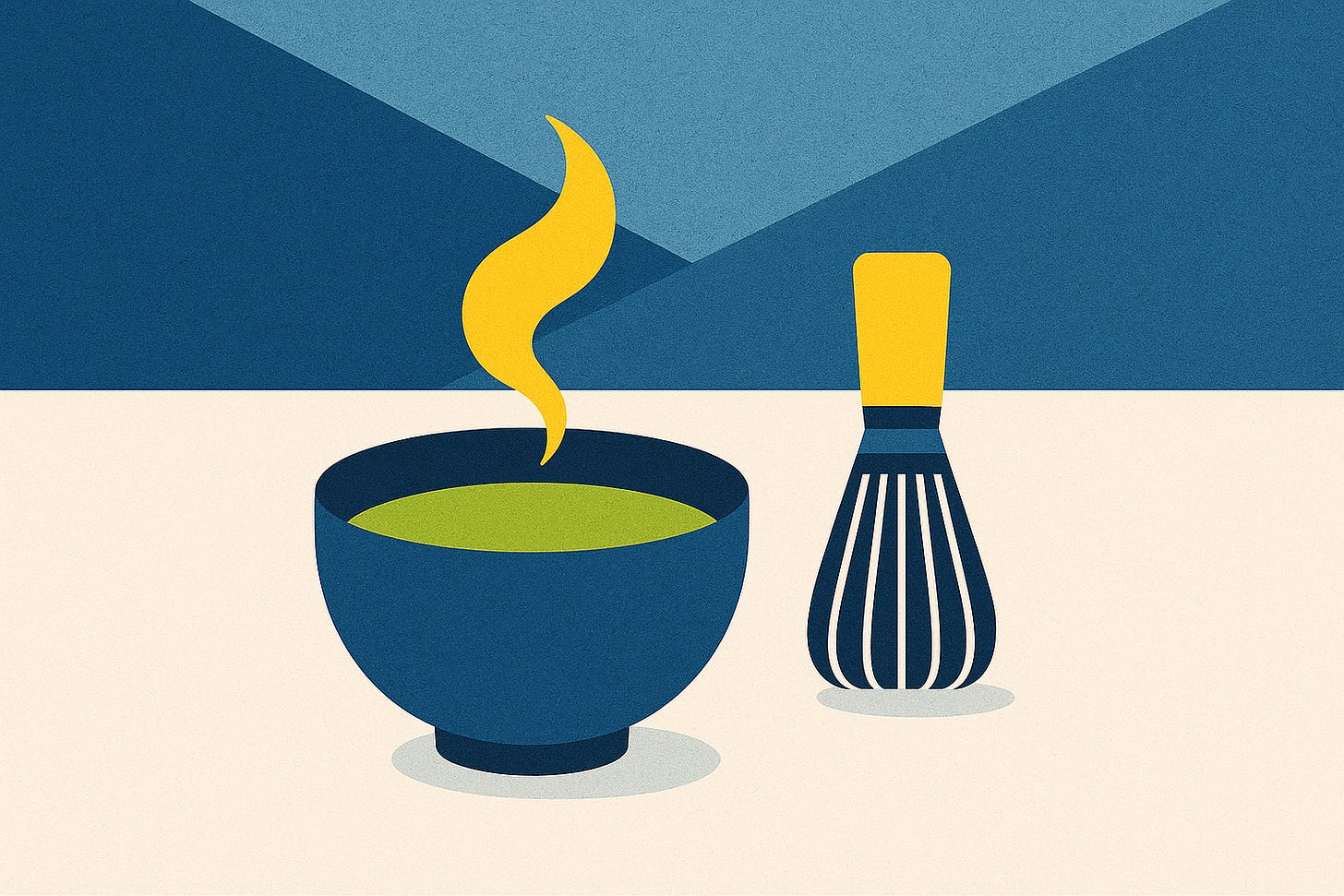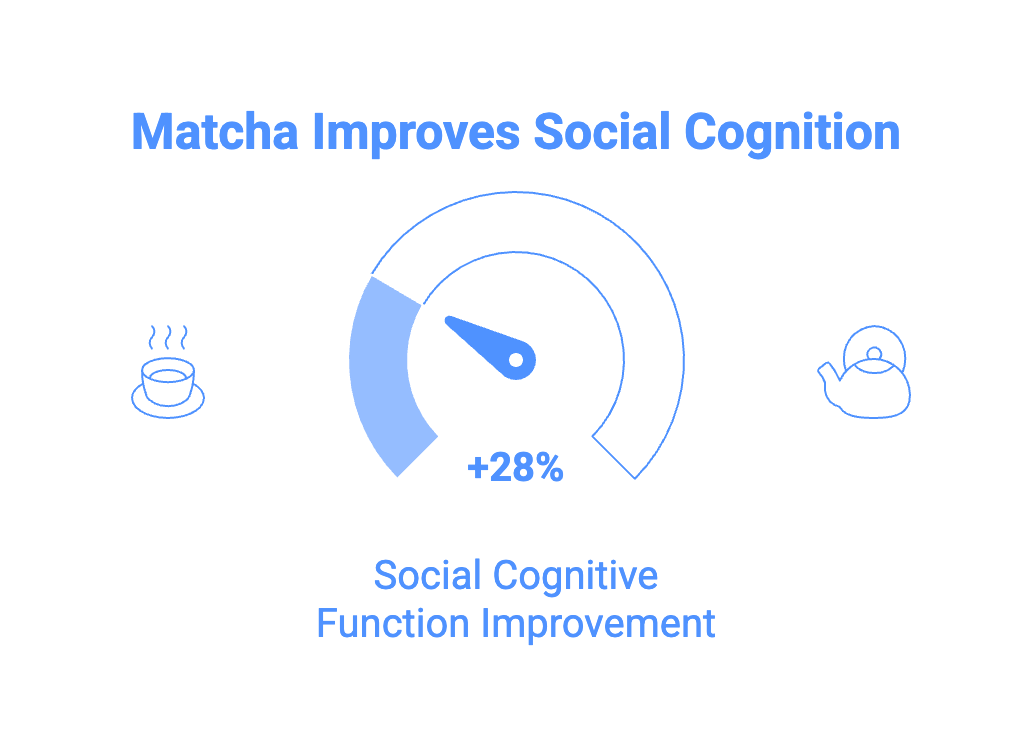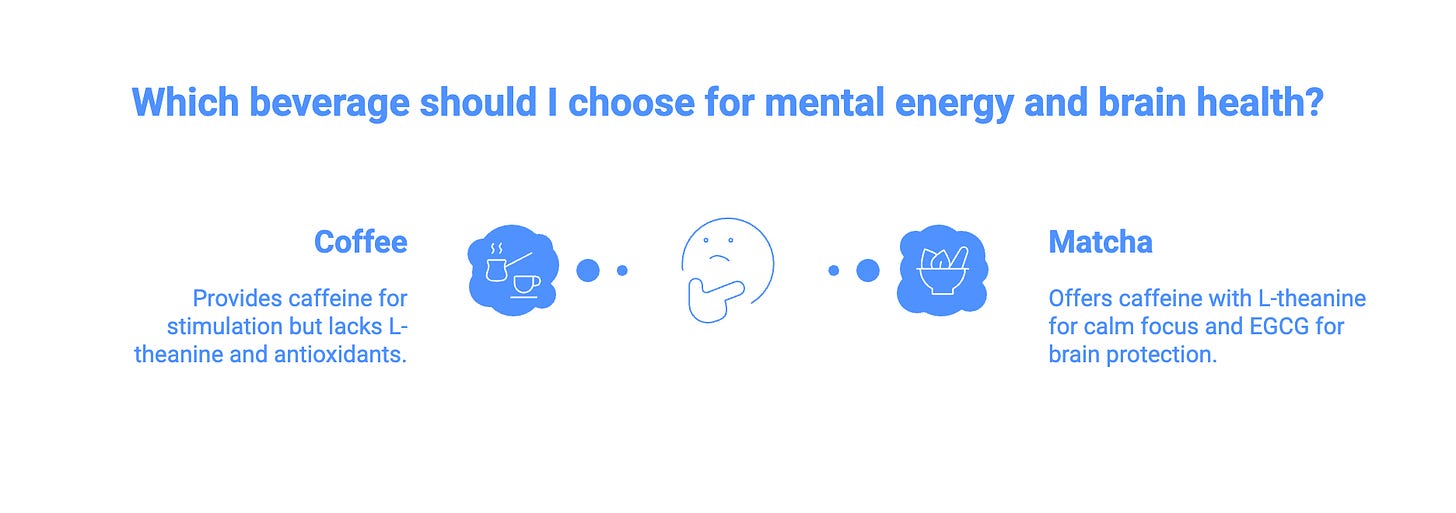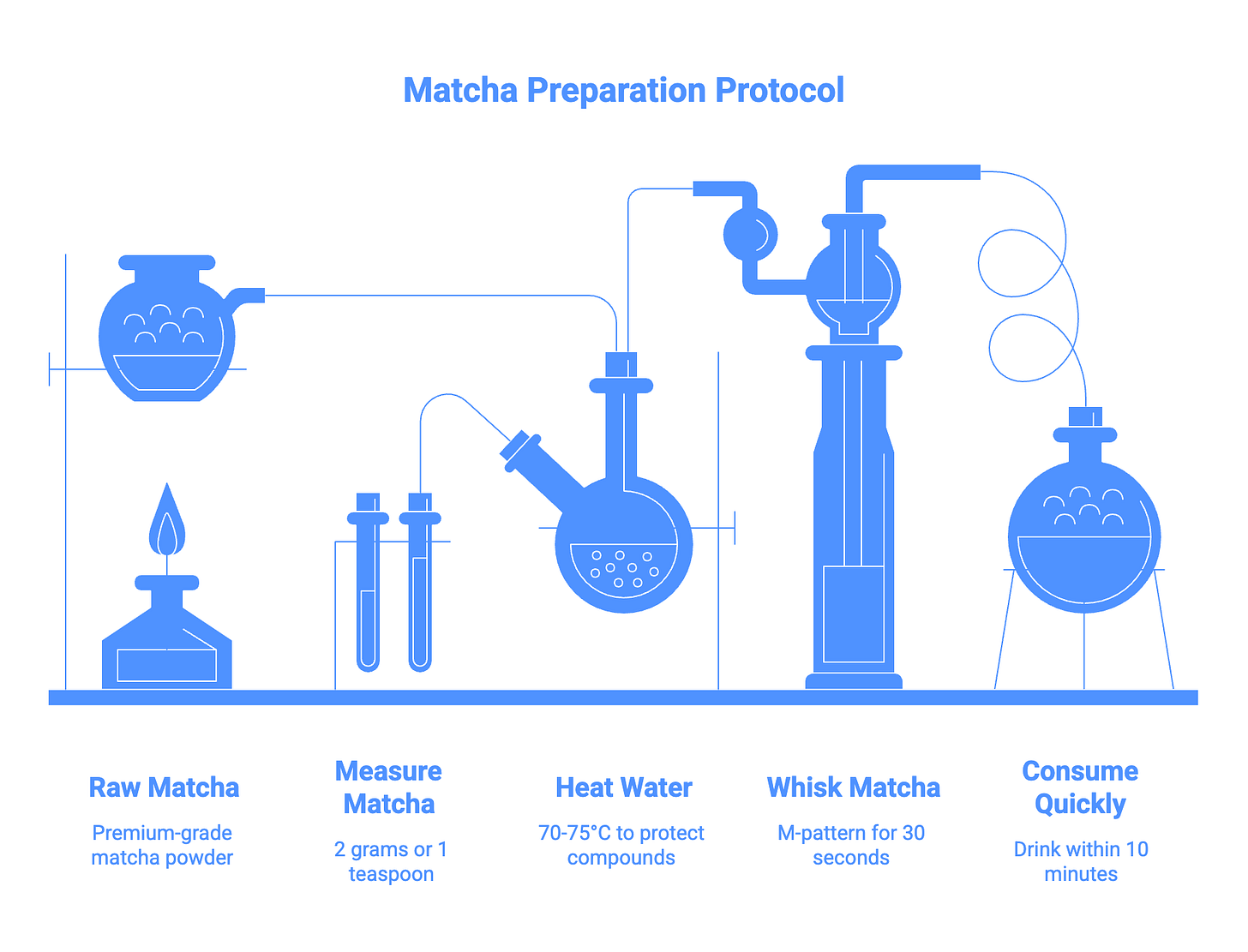Matcha: The Ancient Brain Hack (Finally Backed by Science)
How 2 grams of matcha daily rewires your brain for peak performance
What you’ll discover in the next few minutes:
The exact daily dose that improved cognitive function in clinical trials
Why your afternoon brain fog reveals a missing amino acid
The simple preparation mistake that destroys 95% of matcha’s benefits
Three specific brain changes you’ll notice in 30 days
Hi Kwik Brain,
You’ve felt it before. That 3 PM mental wall where focus disappears and thoughts turn to mush. Coffee promises a rescue but delivers jitters and an even harder crash.
There’s a reason samurai warriors drank matcha before battle. They needed calm focus, not caffeinated chaos. Modern neuroscience finally explains why they were brilliant.
The breakthrough study that shocked researchers
99 older adults participated in a 12-month clinical trial. Half received 2 grams of matcha daily. The other half got a placebo.
The results published in PLOS ONE surprised even the scientists. The matcha group showed significant improvements in social cognitive function - their ability to read emotions and facial expressions improved by 28%. Sleep quality trends improved too.
But here’s what makes this remarkable: the changes were specific and measurable. This wasn’t a vague “feeling better” - it was documented brain enhancement.
Why matcha works when coffee fails
Coffee gives you caffeine. Matcha gives you caffeine plus L-theanine, a unique amino acid that changes your brainwaves within 40 minutes.
L-theanine boosts alpha waves (calm focus) while suppressing beta waves (stress and anxiety). Regular green tea contains trace amounts. Matcha contains 15-30 mg per gram because of its special growing process.
The result? Sustained mental energy without the crash. Your brain gets what it actually needs instead of just stimulation.
There’s more. Matcha contains EGCG (epigallocatechin gallate), a powerful antioxidant that crosses the blood-brain barrier and directly protects brain cells. A recent study of 8,766 adults found that drinking 3+ cups of green tea daily reduces brain lesions associated with cognitive decline by up to 6%.
Coffee showed zero protective effects.
The grade myth that’s costing you results
Most advice gets this backwards. Ceremonial grade sounds premium, but research reveals premium grade contains the highest EGCG levels - nearly double that of ceremonial grade.
For brain benefits, choose premium over ceremonial. Look for bright emerald green color and Japanese origin. Color indicates chlorophyll and nutrient density. Japanese sources avoid the contamination issues found elsewhere.
The preparation protocol that maximizes benefits:
Use 2 grams (about one teaspoon) of premium-grade matcha
Water temperature: 70-75°C (158-167°F) - boiling water destroys heat-sensitive compounds
Whisk for 30 seconds in an M-pattern to create proper suspension
Drink within 10 minutes before oxidation reduces potency
Skip the milk. Dairy proteins bind to antioxidants and reduce absorption by up to 25%. Plant-based alternatives work better if you need to add something.
Your 30-day brain transformation timeline
Week 1: You’ll notice smoother energy without afternoon crashes. The L-theanine effect becomes apparent as mental clarity extends past lunch.
Week 2: Stress response improves. Challenging situations feel more manageable as your brain chemistry stabilizes.
Week 3: Memory formation and recall speed enhance. You’ll find yourself remembering names, details, and information more easily.
Week 4: Sleep quality improves and morning mental clarity sharpens. Your brain starts each day with better baseline function.
Beyond 30 days: The neuroprotective effects compound. You’re building cognitive reserves that defend against age-related decline.
Timing matters. Consume matcha between 9-11 AM on an empty stomach for maximum absorption. The 35-40 mg of caffeine per serving means afternoon consumption can disrupt sleep.
The safety consideration you need to know
Matcha is remarkably safe when consumed traditionally. The European Food Safety Authority established that EGCG becomes problematic above 800 mg daily from supplements.
Two grams of matcha provides 60-240 mg of EGCG - well within beneficial ranges. Start with 1 gram daily if you have liver concerns or take medications.
Your next move determines everything
Start tomorrow morning. Prepare 2 grams of premium-grade matcha correctly. Track your focus levels, stress response, and mental clarity for 30 days.
Ancient wisdom meets modern science in your morning cup. Eight hundred years of monastic tradition wasn’t wrong. Japanese monks knew something about mental performance that we’re just rediscovering.
Your brain is your most valuable asset. Coffee borrowed against your energy account. Matcha makes deposits.
The research is compelling. The preparation is simple. The benefits are measurable.
What’s your brain worth to you?







Really enjoyed this one, Jim . My mom was born and raised in Argentina 🇦🇷 She kept a matcha 🍵 set at home when I was growing up. She always told me it was the favorite drink of the gauchos (the original Argentine cowboys).
Reading this brought back those memories while connecting them to the science behind why it worked. Love how you bridge ancient wisdom with modern neuroscience.
Brilliant! Thanks for sharing 🙏